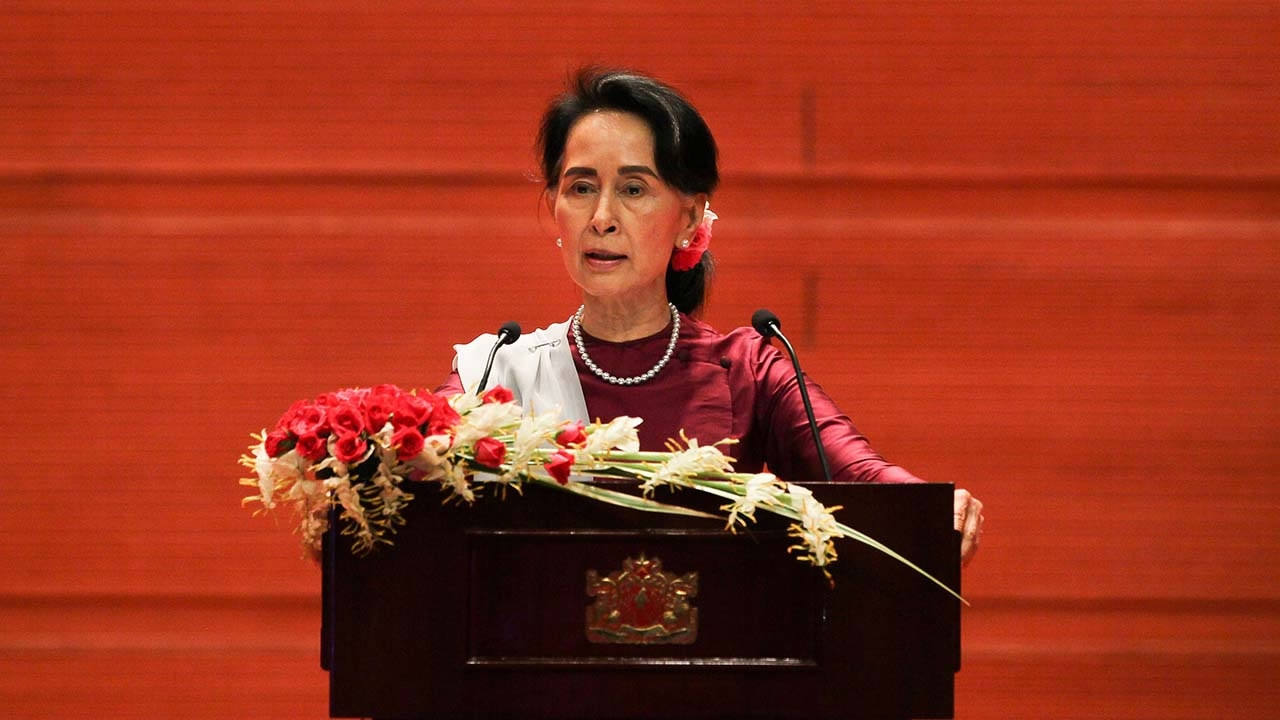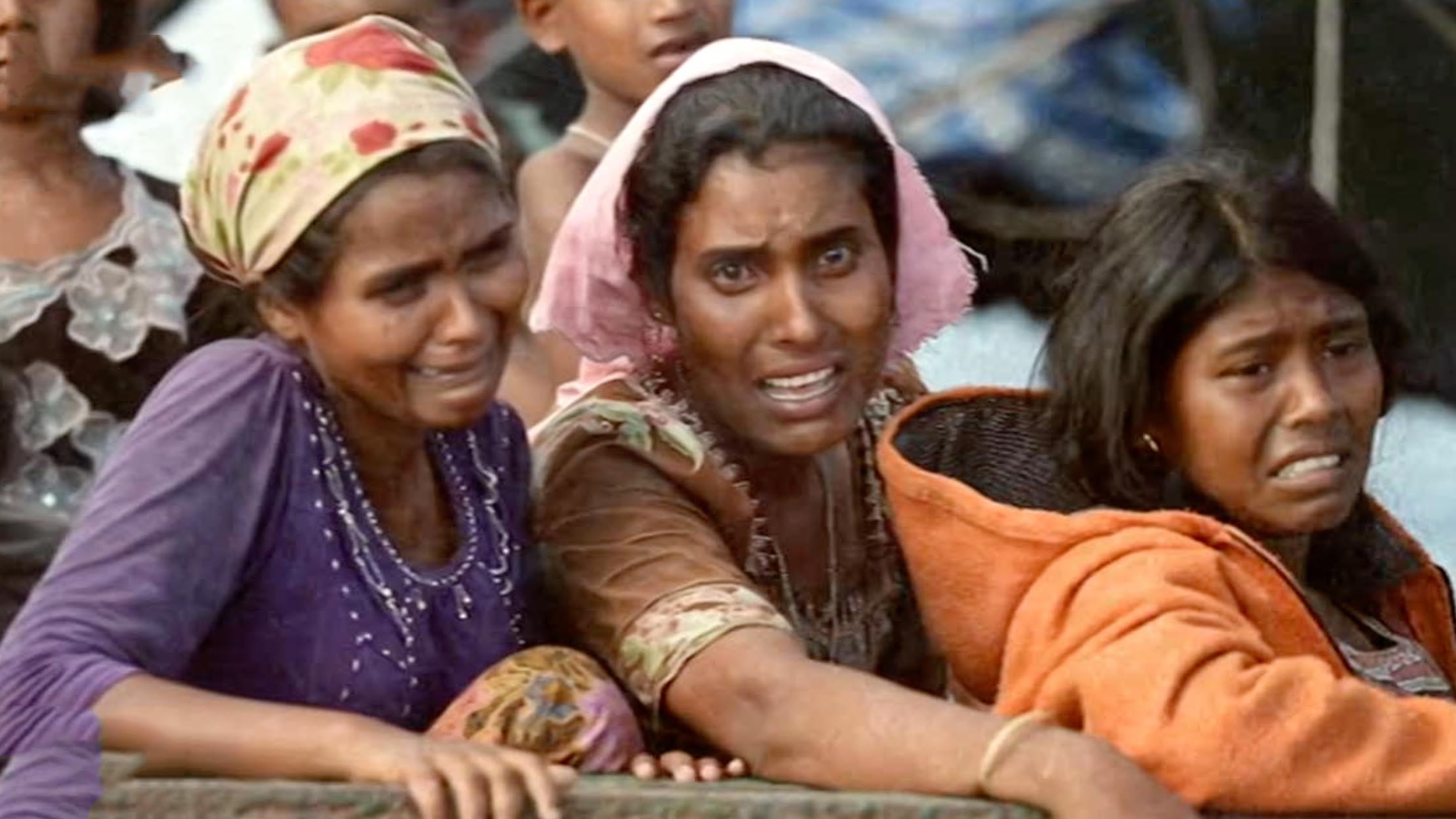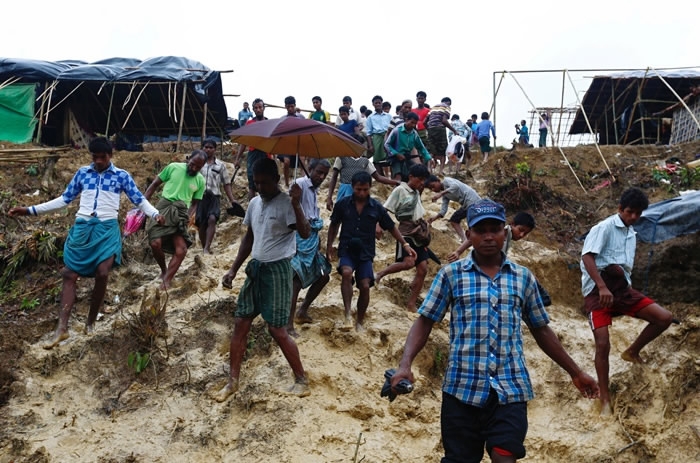
Politics
22:47, 19-Sep-2017
Rohingya crisis: Suu Kyi raises more questions than answers
By Wang Lei

More questions were raised than answers over the Rohingya refugee crisis after Myanmar's leader Aung San Suu Kyi announced a plan to repatriate refugees in accordance with a "verification" process agreed with Bangladesh, Bijo Francis, executive director of Hong Kong-based Asian Human Rights Commission, told CGTN on Tuesday.
It will be very difficult to verify the refugee status of the Rohingya Muslims because many of them did not carry identification papers when they fled violence to Bangladesh, Francis said, adding that other challenges include resolving the citizenship dilemma of the Rohingya – one of the world's largest stateless communities – and giving them equal rights enjoyed by other ethnic groups in the country.
It remains to be seen whether Suu Kyi's plan would work and how much her government is committed to enhancing the Rohingya's rights, the expert indicated.

Suu Kyi broke her silence regarding the Rohingya crisis with a Tuesday televised speech, saying that she feels deeply for the suffering of "all the people who have been caught up in the conflict."
More than 410,000 Rohingya Muslims have fled from Myanmar's westernmost state of Rakhine to Bangladesh since violence broke out in late August. The Rohingya, estimated at about 1.1 million people before the latest exodus, are denied citizenship and viewed as illegal immigrants in Buddhist-majority Myanmar.
Myanmar is ready "at any time" to repatriate the Muslim refugees who have fled the country, Suu Kyi said. "Those who have been verified as refugees from this country will be accepted without any problems."

Mixed responses
Suu Kyi's speech has received mixed responses. In Myanmar, most people still support the 72-year-old state counselor and large crowds in Yangon watched her speech broadcast on big screens, according to CGTN correspondent David Grunebaum, who added that many local residents feel foreigners don't understand the situation in Rakhine.
"She told the real situation to the world on behalf of Myanmar people," Yu Chan Myae, 27, told AFP.
At a regular press conference on Tuesday afternoon, Chinese Foreign Ministry spokesperson Lu Kang said China hoped Suu Kyi's speech could "enhance the international community's understanding" of the situation in Myanmar.
"China will continuously provide needed assistance in order to help Myanmar protect its stability and development," he noted.

Phil Robertson of Human Rights Watch understands why Suu Kyi failed to defend the Rohingya vigorously in her speech, according to an AFP report.
"She is trying to claw back some degree of credibility with the international community, without saying too much that will get her in trouble with the (military) and Burmese people who don't like the Rohingya in the first place," he said.
It was not immediately clear how many Rohingya Muslims would qualify to return. But Richard Horsey, an independent analyst based in Myanmar, called Suu Kyi's repatriation pledge "new and significant," explaining it would in principle allow for the return of those who can prove residence in Myanmar.
Nevertheless, Rights group Amnesty International slammed the Nobel peace laureate for "burying her head in the sand" over alleged army abuses and claims of rape, murder and the systematic clearing of scores of villages.
On September 11, the United Nations human rights chief Zeid Ra'ad Al Hussein said the Myanmar military's crackdown on the Rohingya amounted to "ethnic cleansing."

Rohingya refugees climb down a hill as it rains at a camp in Cox's Bazar, Bangladesh, September 19, 2017. /Reuters Photo
Rohingya refugees climb down a hill as it rains at a camp in Cox's Bazar, Bangladesh, September 19, 2017. /Reuters Photo
Why Suu Kyi is criticized?
The treatment of the Rohingya has emerged as the biggest challenge for Suu Kyi since she came to power two years ago. Once hailed an icon of human rights and the hope of democracy in Myanmar, she is now facing mounting criticism for her lack of action over the current crisis. Some even call for the Nobel committee to revoke her peace prize. Why has Suu Kyi fallen out of favor with the West?
"The pressure that Aung San Suu Kyi faces is different at home and abroad," Song Qingrun, a researcher at China Institutes of Contemporary International Relations, told Global Times earlier this month. The government led by Suu Kyi is in a dilemma as the majority of Myanmar's residents do not accept the Rohingya as their fellow citizens, he said, adding that the Western media has made the Rohingya issue a global topic.

Supporters of Myanmar State Counselor Aung San Suu Kyi react while listening to her speech to the nation over Rakhine and Rohingya situation in Yangon, Myanmar, September 19, 2017. /Reuters Photo
Supporters of Myanmar State Counselor Aung San Suu Kyi react while listening to her speech to the nation over Rakhine and Rohingya situation in Yangon, Myanmar, September 19, 2017. /Reuters Photo
According to Song, Suu Kyi is by and large a pragmatic politician who attaches great importance to religious and ethnic reconciliation, but the Rohingya issue, dating back several decades, cannot be solved overnight.
She is also pragmatic in diplomacy, Song said. To promote stability at home and advance Myanmar's political interests, Suu Kyi visited ASEAN countries first and then China, before going to the United States.
After Suu Kyi took office in 2015, she did not became a close ally of the West as previously expected, said Zhu Zhenming, a researcher at China's Yunnan Academy of South East Asian and South Asian Studies. Calling it a shock to the West, Zhu said the Western media's fierce criticism of Suu Kyi reflected dissatisfaction toward her foreign policies.

SITEMAP
Copyright © 2018 CGTN. Beijing ICP prepared NO.16065310-3
Copyright © 2018 CGTN. Beijing ICP prepared NO.16065310-3